Ever heard the phrase, “You can’t teach an old dog new tricks”? Well, science says that’s just not true—at least when it comes to your brain. The concept of neuroplasticity has flipped everything we thought we knew about how our brains work, adapt, and heal. If you’re looking to boost memory, learn new skills, overcome bad habits, or even recover from a setback, neuroplasticity is your best friend.
But here’s where things get really interesting: With all the hype around brain health, more and more people are asking—can supplements really rewire your brain? Is it possible to swallow a pill and make your brain more flexible, sharper, or even younger? Let’s break down the real science, separate fact from fiction, and find out what works.

Defining Neuroplasticity
Neuroplasticity is your brain’s built-in ability to change itself, form new connections, and adapt to experiences throughout life. Think of your brain like a city, constantly building new roads, fixing old ones, and rerouting traffic to meet your needs. This flexibility is why you can learn a new language, pick up a musical instrument, or recover lost abilities after an injury. It’s also why bad habits or anxiety can become “wired in”—but, with effort, they can be rewired.
Why Neuroplasticity Matters for Everyone
Neuroplasticity isn’t just for scientists or people recovering from injury. It’s for students, professionals, athletes, parents, and anyone who wants to upgrade their mind. Whether you want to keep your memory sharp as you age, get more creative at work, or break out of a rut, harnessing neuroplasticity is the way forward. And with the rise of brain supplements and nootropics, it’s no surprise people are asking if these products can speed up or enhance the brain’s natural rewiring.
How Neuroplasticity Works: The Brain’s Ability to Adapt
Your brain isn’t a fixed piece of hardware—it’s a living, changing network that responds to everything you do, think, and feel.
Key Mechanisms of Brain Change
There are a few major ways neuroplasticity happens:
-
Synaptic plasticity: This is all about the connections between your brain cells (neurons). When you practice a new skill, these connections get stronger—think of it as upgrading your brain’s “Wi-Fi signal.”
-
Neurogenesis: Believe it or not, some areas of your brain can actually grow new neurons, especially the hippocampus (which helps with memory and learning).
-
Cortical remapping: If one part of your brain gets damaged or isn’t used, other areas can step in and take over the job.
Every time you challenge yourself, learn something new, or break a habit, you’re flexing your brain’s neuroplasticity muscle.
Examples of Neuroplasticity in Everyday Life
-
Learning to drive: Remember how complicated it seemed at first? With practice, those actions became automatic—your brain built and strengthened those pathways.
-
Recovering from injury: Stroke survivors often re-learn lost skills by “rewiring” different brain regions.
-
Changing habits: Whether you’re quitting smoking or starting to meditate, repetition literally reshapes your brain’s circuits.
Factors That Influence Neuroplasticity
Not everyone’s brain is equally plastic all the time. Several lifestyle and environmental factors can either support or block your brain’s ability to adapt.
Learning, Environment, and Experience
-
Curiosity: Engaging your brain with new challenges (puzzles, languages, instruments) keeps those neural pathways growing.
-
Rich environments: Social connections, interesting surroundings, and regular exposure to novelty all enhance brain plasticity.
-
Practice: The more you repeat an action or thought pattern, the more “hardwired” it becomes.
Sleep, Stress, and Physical Health
-
Quality sleep: Deep sleep is when your brain processes and “locks in” new connections.
-
Chronic stress: High cortisol levels can literally shrink parts of the brain involved in learning and memory.
-
Exercise: Regular movement, especially cardio, boosts neurogenesis and supports the release of brain-derived neurotrophic factor (BDNF), a chemical vital for plasticity.
The Role of Supplements in Supporting Brain Health
With all this science behind how the brain changes, it’s no wonder so many people are curious about supplements for neuroplasticity. But what’s hype, and what’s backed by evidence?
Popular Supplements for Brain Plasticity
Walk into any supplement store and you’ll see a wall of products promising better memory, faster thinking, and a healthier brain. The most popular supplements for supporting neuroplasticity include:
-
Omega-3 fatty acids (DHA and EPA)
-
Lion’s mane mushroom
-
B vitamins (especially B6, B9, B12)
-
Magnesium
-
Choline and phosphatidylserine
-
Nootropic blends with herbs and amino acids like bacopa, rhodiola, or L-theanine
How Do Supplements Work on the Brain?
Supplements claim to boost brain health by:
-
Increasing blood flow and oxygen to the brain
-
Reducing inflammation and oxidative stress
-
Supporting the growth and maintenance of neurons
-
Enhancing neurotransmitter production (the chemicals that let your brain cells talk to each other)
-
Raising levels of BDNF, the “miracle-grow” for your neurons
But do these pills really live up to the hype? Let’s dig into the research.

The Evidence: Do Brain Supplements Really Boost Neuroplasticity?
Here’s the million-dollar question: Can supplements actually help rewire your brain, or are you better off sticking to lifestyle changes alone?
What the Latest Research Says
-
Omega-3s: There’s solid evidence that omega-3 fatty acids, especially DHA, play a crucial role in building and repairing brain cells. Studies suggest that people who eat more fish or take high-quality fish oil supplements show improvements in memory, learning, and even brain structure.
-
Lion’s Mane Mushroom: Early research (mainly in animals and small human studies) shows this unique mushroom may increase levels of nerve growth factor (NGF), helping neurons grow and connect. Users report improved mood, focus, and even relief from brain fog.
-
B Vitamins: Deficiencies in B6, B9 (folate), or B12 are linked to cognitive decline and memory issues. Supplementing these vitamins (especially in older adults or vegetarians) supports healthy neurotransmitter levels and may protect against brain shrinkage.
-
Magnesium: This mineral is involved in hundreds of brain processes, including synaptic plasticity. Low magnesium is linked to poor memory and higher risk of mood disorders. Some evidence suggests magnesium supplements help restore plasticity, especially under stress.
-
Nootropics: Compounds like bacopa, L-theanine, and rhodiola have been studied for their effects on attention, mood, and stress resilience. Some trials show benefits for memory and focus, especially when used consistently.
Limitations and Myths About “Brain Pills”
Let’s be honest: no supplement is a magic bullet. A healthy lifestyle—rich in sleep, learning, movement, and real food—has a much bigger impact on neuroplasticity than any pill. Some supplements are overhyped or under-studied. Effects may be subtle or take weeks to show. And quality matters—a lot. Only buy supplements from trusted brands, and don’t expect instant “limitless” results.
Top Supplements for Neuroplasticity: What Science Supports
Not all brain supplements are created equal. Some have real science behind them, others just have slick marketing. Here’s a closer look at the supplements with the most research supporting their role in boosting neuroplasticity.
Omega-3 Fatty Acids (Fish Oil, DHA, EPA)
Omega-3s—especially DHA (docosahexaenoic acid)—are absolute rockstars when it comes to brain health. DHA is a major building block for brain cell membranes and helps your neurons fire efficiently. Multiple studies link higher omega-3 intake to better memory, faster learning, and even protection against age-related brain decline.
-
Best sources: Fatty fish (salmon, sardines, mackerel), high-quality fish oil or algal oil supplements.
-
Why it matters for neuroplasticity: DHA helps create flexible, healthy cell membranes—crucial for forming and maintaining new neural connections.
Lion’s Mane Mushroom and Other Adaptogens
Lion’s mane mushroom is trending hard for a reason. Early research shows it may increase nerve growth factor (NGF) and support the growth of new neurons. People report better focus, mood, and even less brain fog after regular use.
-
How to use: Capsules, powders, or functional coffee blends with lion’s mane extract.
-
Other adaptogens: Rhodiola and ashwagandha are also known for supporting brain health and resilience to stress—key for neuroplasticity.
B Vitamins, Magnesium, and Choline
B vitamins (especially B6, B9, and B12) are essential for neurotransmitter production and the maintenance of brain cells.
-
Who needs them: Vegans, older adults, or anyone with absorption issues may benefit most.
-
Choline: Found in eggs and some supplements, it’s critical for making acetylcholine, a neurotransmitter vital for learning and memory.
-
Magnesium: This mineral is a quiet hero for neuroplasticity, supporting the “rewiring” process and calming an overactive nervous system.
Nootropic Blends and Emerging Compounds
The nootropic world is booming, with blends that combine herbs, amino acids, and micronutrients. Look for products with:
-
Bacopa monnieri: Traditionally used for memory and cognitive performance.
-
L-theanine: Found in green tea, it promotes calm focus and balances out caffeine.
-
Phosphatidylserine: Supports cell membrane health and communication between neurons.
While the evidence for many nootropics is still emerging, some people experience noticeable benefits for focus, mood, and memory.
Lifestyle Habits That Supercharge Neuroplasticity
Supplements can help, but lifestyle is still king. The habits you build every day have the biggest impact on how flexible, sharp, and adaptable your brain becomes.
The Power of Learning and Challenge
Want to boost neuroplasticity? Challenge your brain!
-
Learn a new language, instrument, or skill.
-
Tackle puzzles, crosswords, or logic games.
-
Switch up your daily routine: Even small changes (like brushing your teeth with your non-dominant hand) wake up new neural pathways.
The more you use your brain, the more it adapts, grows, and rewires itself.
Exercise and Movement for Brain Growth
Cardio isn’t just for your heart—your brain loves it, too. Regular movement increases blood flow, delivers nutrients, and triggers the release of BDNF (brain-derived neurotrophic factor), which acts like “Miracle-Gro” for your neurons.
-
Aim for: 20–30 minutes of moderate exercise most days—walking, biking, swimming, or dancing.
-
Bonus: Activities that require coordination (like tennis, yoga, or even learning new dance moves) give your brain an extra workout.
Mindfulness, Meditation, and Rest
Mindfulness and meditation aren’t just for relaxation—they literally change your brain’s structure.
-
Regular meditation: Can increase gray matter density in areas related to memory, attention, and emotional control.
-
Mindful breathing: Calms stress, boosts clarity, and helps your brain form new, healthier patterns.
-
Deep sleep: Is when your brain does its “maintenance”—sorting memories, pruning weak connections, and reinforcing important ones.
Build these habits into your daily routine, and you’re giving your brain the best shot at rewiring itself for the better.
Should You Try Supplements for Brain Rewiring?
You might be wondering—should you jump on the supplement train, or is lifestyle enough? Here’s how to decide what’s right for you.
Who Might Benefit Most?
Supplements may be especially helpful if:
-
You eat a restricted diet (like vegan or vegetarian) and might be low in certain nutrients (omega-3s, B12, choline).
-
You’re recovering from brain injury or intense mental fatigue.
-
You’re seeking an extra edge for focus, mood, or memory alongside healthy habits.
-
You have stress, poor sleep, or trouble sticking to a balanced diet.
If you’re generally healthy and have a solid lifestyle, supplements are a “nice to have” rather than a must-have—but they can offer extra support.
Safe Use and What to Look for in a Brain Supplement
-
Quality first: Choose supplements from trusted, third-party tested brands. Check for transparency about sourcing and ingredients.
-
Avoid hype: Don’t fall for miracle-cure promises. No pill will make you a genius overnight.
-
Watch the dose: More isn’t always better. Follow label instructions or talk to your doctor, especially if you take medications or have health issues.
-
Combine, don’t replace: Supplements are most effective when used alongside smart habits, not instead of them.
Conclusion: The Real Path to a Flexible, Powerful Brain
Neuroplasticity is one of the most exciting discoveries in neuroscience—proving that your brain can change, adapt, and grow at any age. While supplements like omega-3s, lion’s mane, and B vitamins can absolutely support brain health and the rewiring process, the biggest impact still comes from how you live, learn, and challenge yourself every day.
Use supplements as a smart boost, but remember: sleep, movement, real food, curiosity, and connection are what really drive long-term brain growth. Invest in your habits, give your brain what it needs, and you’ll be amazed at what’s possible—no matter where you start.
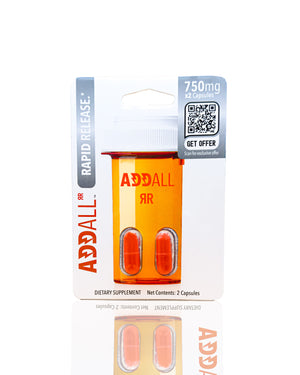
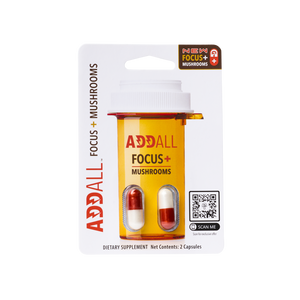

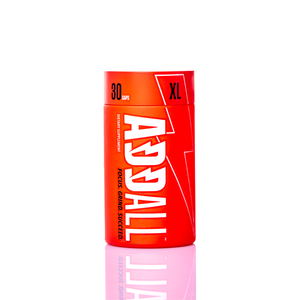
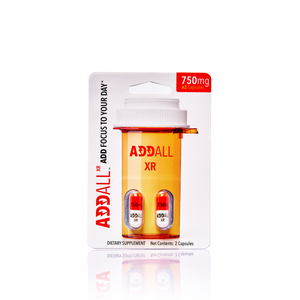

 Addall XR
Addall XR
 Addall XL
Addall XL
 Addall
Addall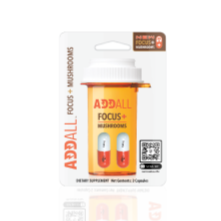 Addall
Addall Addall
Addall
 Compare
Compare




















































